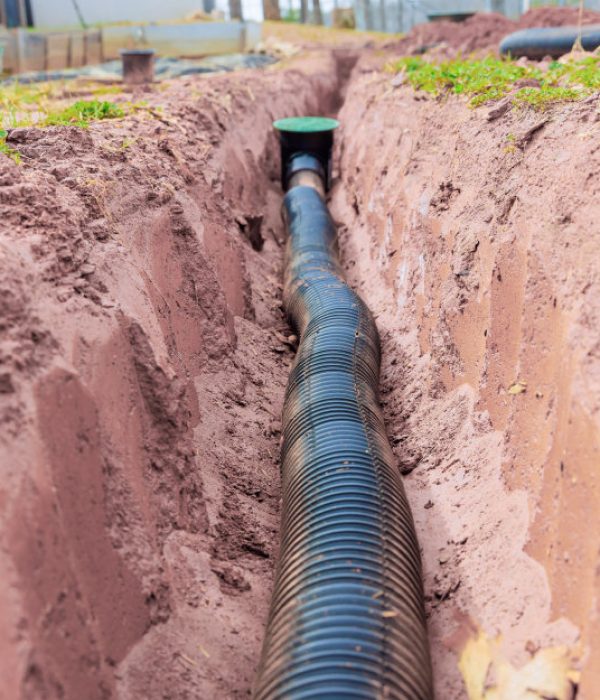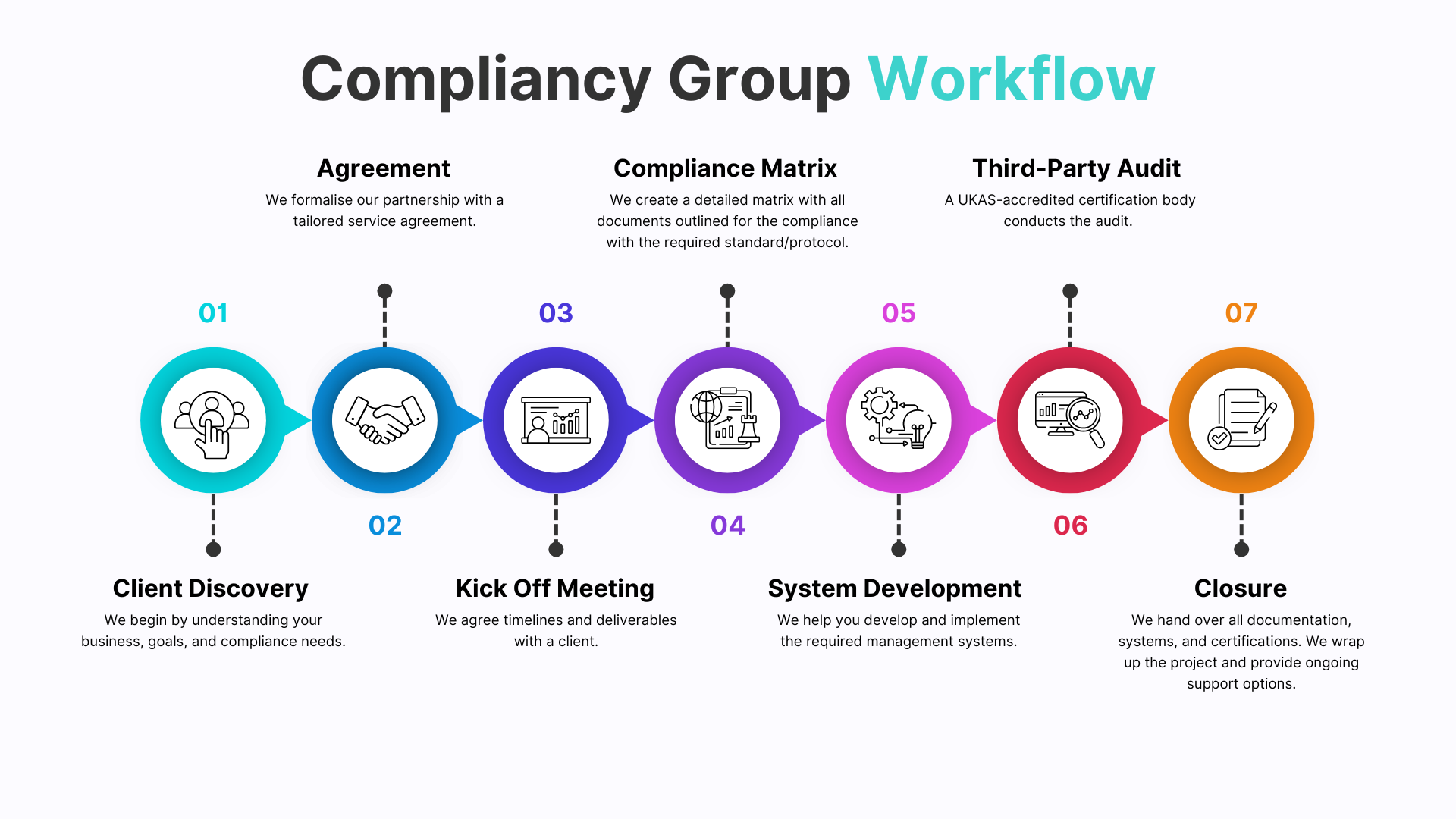We're Here To
Help

WIRS (Water Industry Registration Scheme) accreditation is the recognised standard for contractors and Independent Connection Providers (ICPs) working on water connections to the UK network. Gaining WIRS demonstrates your business meets strict technical, safety, and quality requirements set by water companies and industry regulators. Achieving WIRS not only ensures compliance and reduces operational risks, but also unlocks new project opportunities and builds trust with clients. Compliancy Group guides you through every step – making WIRS compliance clear, achievable, and a genuine business advantage.
Our team understands the unique challenges faced by water industry contractors and ICPs. We bring hands-on experience with WIRS applications, water company requirements, and sector-specific regulatory frameworks.
No one-size-fits-all here. Whether you need WIRS gap analysis, ISO certification, statutory inspections, or day-to-day compliance advice, our services are fully customised to your operations. We offer flexible support packages – from essential guidance to comprehensive on-site consultancy.
We partner exclusively with UKAS-accredited certification bodies and maintain a 100% pass rate for certification assessments. Our clients trust us to deliver results that stand up to audit and regulatory scrutiny – helping you achieve, maintain, and leverage compliance for business growth.
Compliance shouldn’t slow you down. We help you build safer, more resilient operations, reduce risk, and improve efficiency – so you can focus on delivering projects and winning contracts.
You’ll work directly with our expert team, including leadership involvement from our CEO. We pride ourselves on responsive communication, clear guidance, and ongoing support throughout your compliance journey.





WIRS accreditation allows your business to undertake contestable works for water companies, opening doors to more projects and clients.
Demonstrate your technical competence, safety, and quality standards to clients and stakeholders.
Compliance with WIRS standards helps prevent costly project delays and rework due to failed assessments.
Achieving and maintaining WIRS accreditation enhances your standing in the utilities and construction sector, setting you apart from competitors.
Regular audits and compliance checks foster a culture of ongoing improvement and operational excellence.
From gap analysis to audit support, our team ensures you’re always prepared and confident.
We streamline compliance processes, freeing up your team to focus on core business activities.
Services are tailored to your specific business needs, not generic templates.
Ongoing support, training, and regulatory updates keep your business compliant long after certification.
Our 100% certification pass rate and exclusive partnerships with UKAS-accredited bodies mean you’re in safe hands.

WIRS stands for Water Industry Registration Scheme. It’s a UK-based scheme that allows self-lay providers (SLPs) and other organisations to be recognized as competent to undertake the design and construction of new water infrastructure that will be adopted by the incumbent water companies.
To obtain WIRS accreditation: Familiarise yourself with the specific requirements and guidelines for WIRS. Complete the application process, which typically involves submitting relevant documentation about your organisation and its capabilities. Undergo a technical assessment, which may involve both desktop reviews of your documentation and on-site assessments. Address any gaps or non-conformities that might be identified during the assessment. Once you meet all requirements and successfully pass the assessment, you’ll be granted the WIRS accreditation.
While specific requirements can vary depending on the scope of work and the area of specialisation, general WIRS accreditation requirements include: Demonstrating technical competency in the water industry. This might involve having qualified personnel, necessary equipment, and appropriate procedures in place. Proving that your organisation has effective health and safety procedures in place that align with industry standards. Having a quality management system in place. Successful completion of both initial and ongoing audits and assessments.
-Design work -Project management -Installation of mains and/or service pipes -Routine mains connections (note: this requires existing accreditation for mains and services installation) -Service connections only -Routine and non-routine mains connections (stand-alone in Scotland, where construction accreditation is not separate) -Meter asset maintenance (Scotland only) -Permanent disconnections for non-household customers (Scotland only) -CRUPC – Construction of Routine Under Pressure Connections
In order to be WIRS accredited, the companies undergo technical assessments from LRQA. We assess several areas, including design, construction, connections, commissioning and project management.
Accreditation provides market differentiation and objective proof that an organisation complies with best practice. It is the internationally-recognised system that is used to develop and sustain high standards of performance.
WIRS certification opens up new opportunities with water companies, builds trust with clients, improves your technical and safety standards, and enhances your reputation in the utilities sector.
Simply contact us for a free consultation or take our compliance quiz to see where you stand and how we can help your business achieve WIRS accreditation.